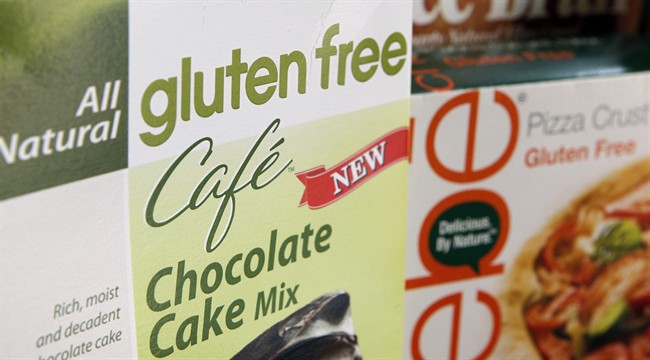Followers of the gluten-free diet swear that it helps them lose weight and avoid bloating, but new research is warning that ruling out gluten if you don’t have to is increasing your risk of developing Type 2 diabetes.

Doctors out of Harvard University say that while the gluten-free craze has taken off, people who don’t have celiac disease or gluten intolerance may be hurting their health by adopting the fad diet.
“We wanted to determine if gluten consumption will affect health in people with no apparent medical reasons to avoid gluten,” Dr. Geng Zong, a research fellow at the school’s nutrition department, said.
“Gluten-free foods often have less dietary fibre and other micronutrients, making them less nutritious and they also tend to cost more. People without Celiac disease may reconsider limiting their gluten intake for chronic disease prevention, especially for diabetes,” he said.
READ MORE: Here’s what you need to know about prediabetes and your risk of Type 2 diabetes
There are about 300,000 Canadians living with celiac disease, according to Health Canada. It’s a food sensitivity triggered by gluten, causing damage to the small intestine while leaving patients with inflammation and abdominal pain among other symptoms.
Right now, the only way people manage celiac disease is by following a strict gluten-free diet. Gluten is a protein found in wheat, rye and barley – it’s what gives bread and other baked goods their elasticity during the baking process and a chewy texture in finished products.
- ‘She gets to be 10’: Ontario child’s heart donated to girl the same age
- Bird flu risk to humans an ‘enormous concern,’ WHO says. Here’s what to know
- Buzz kill? Gen Z less interested in coffee than older Canadians, survey shows
- Canada updating sperm donor screening criteria for men who have sex with men
READ MORE: Here’s how you can stave off Type 2 diabetes
Gluten is found in grains, such as wheat, barley and rye. Gluten-free diets instead swap these out for flours made with rice, soy, potatoes or tapioca. Beans, nuts, fresh eggs, meat, fruit and vegetables are also safe bets for those with gluten intolerance.
For Zong’s research, he looked at the health records and eating habits of nearly 200,000 people who took part in three long-term studies. Every two years, the study participants reported what they were eating while their gluten intake and diabetes risk were taken into account.
Turns out, about 16,000 people were diagnosed with Type 2 diabetes over the course of 30 years. It was those who ate the most gluten who had the lowest rates of Type 2 diabetes risk. People who ate less gluten were also less likely to get fibre, another protective factor against diabetes.
READ MORE: Gluten-free for weight loss? You’re doing more harm than good, study suggests
On average, people were eating about 12 grams of gluten per day. The major sources were pastas, cereals, pizza, muffins, pretzels and bread.
It’s hard to pinpoint why diabetes was more prominent in the group that ate the least amount of gluten. Keep in mind, most of the participants took part in the studies before gluten-free diets become popular and they didn’t outright say they were going gluten-free, Zong conceded.
So far, the study is pointing to an association between diabetes and lower gluten intake, he said.
This isn’t the first study is emphasize the risk involved with a gluten-free diet for those who don’t medically need to do so.
READ MORE: Is your gluten intolerance real? Study says gluten insensitivity is fake
In 2014, University of Florida scientists say that refined gluten-free food isn’t enriched or fortified with essential minerals and vitamins.
Some experts say that the gluten-free label has a “health halo” meaning people reach for these products thinking they are better options. The products are probably still processed, though. And if they do feel good? They might be eating more whole foods.
“Gluten-free doesn’t necessarily mean healthy for you. Gluten-free muffins or cake or baked goods – people think they’re good for them, but it’s not, necessarily,” Cleveland Clinic registered dietitian Jennifer Sygo explained.
READ MORE: These are the 10 foods that affect your risk of heart disease, according to scientists
Type 2 diabetes is a lifelong disease in which your pancreas doesn’t produce enough insulin, or your body doesn’t properly use the insulin it makes, according to the Canadian Diabetes Association. As a result, sugar builds up in your blood instead of being used for energy.
You can keep diabetes at bay by maintaining a healthy diet and exercise regime, managing your stress, and paying attention to your blood sugar levels.
Zong’s full findings were presented at the American Heart Association’s 2017 scientific sessions.
carmen.chai@globalnews.ca
Follow @Carmen_Chai




Comments